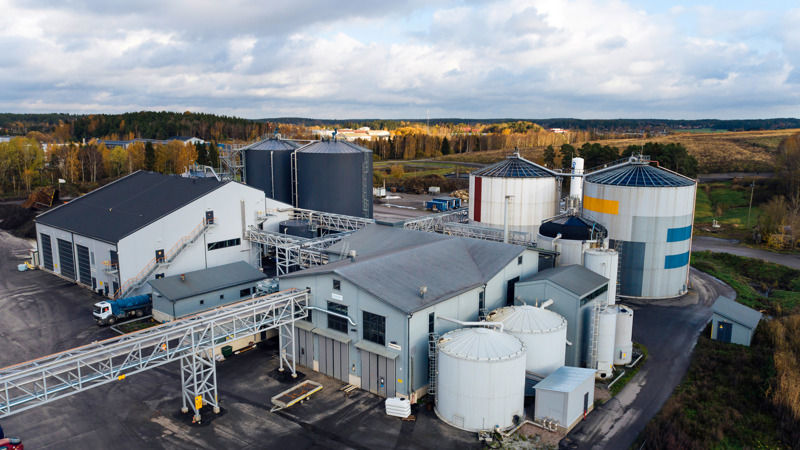Turku biogas plant
The Turku biogas plant mainly processes sewage sludge. All digestate at the Turku plant undergoes centrifugation. The centrifuged solid digestate is processed into compost and soil improvers by a partner company. Nutrients are recovered from centrifuge reject water as nitrogen concentrates, after which reject water is transported via the sewage system to a wastewater treatment plant.
Contact information
Address:
Silakatu 16
20380 Turku
Finland
Plant Manager
Ossi Lehtonen
tel. +358 40 411 9717
ossi.lehtonen@gasum.com
Turku biogas plant is the first in Finland to produce liquefied biogas for transport, industrial and maritime needs. The major expansion and modernization of Gasum’s biogas plant in Topinoja, Turku has been completed in November 2020.
The plant will process around 130,000 tonnes of biomass a year, to produce around 60 GWh of liquefied biogas (LBG) a year, which corresponds to the annual fuel consumption of 125 heavy-duty vehicles or 5,000 cars. The plant will also produce around 4,000 tonnes of ammonia water for use as a recycled nutrient. The Turku biogas plant promotes the realization of the circular economy and the development of the gas market in the Turku region.
Standards ensure commitment to responsibility in various operations
The Turku biogas plant is certified in accordance with ISO 9001, ISO 14001, ISO 45001 and ISO 50001 requirements. Compliance with quality, environment, occupational health and safety, and energy management standards will improve Gasum’s competitiveness and also benefit customers. Read more >
Operational since:
2009, modernization 2020
Waste processing capacity:
130,000 tonnes/year
Gas production capacity:
61 GWh/year
Biogas process:
thermophilic

